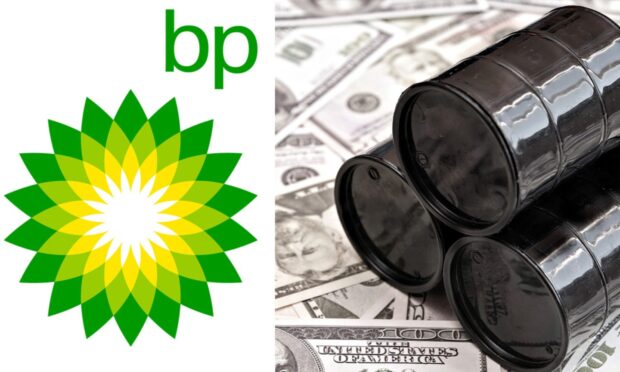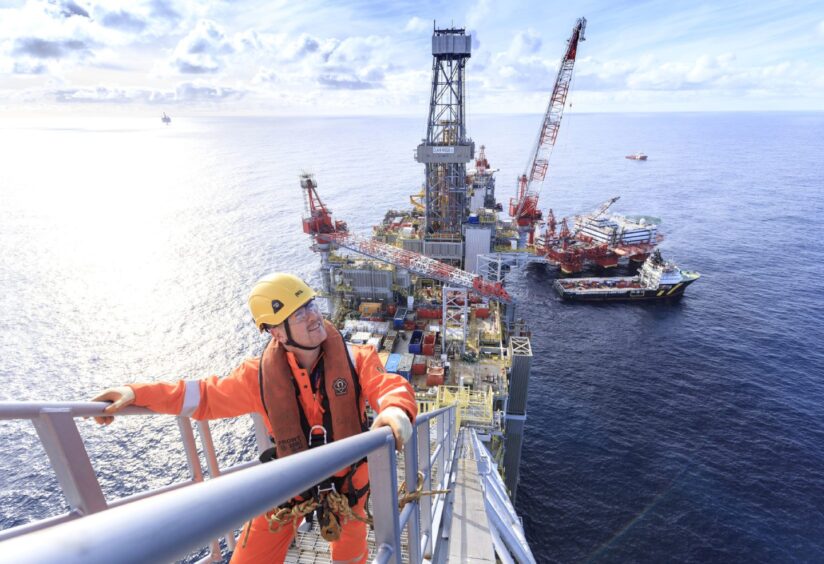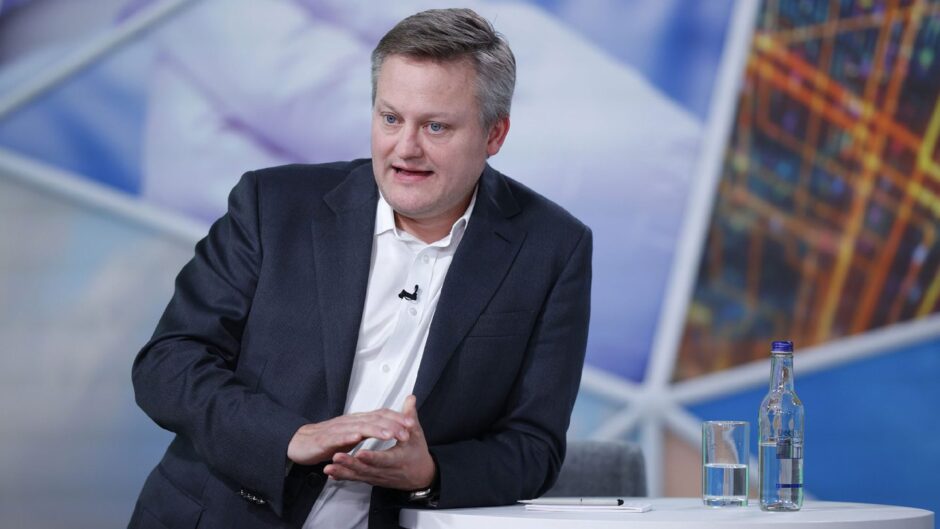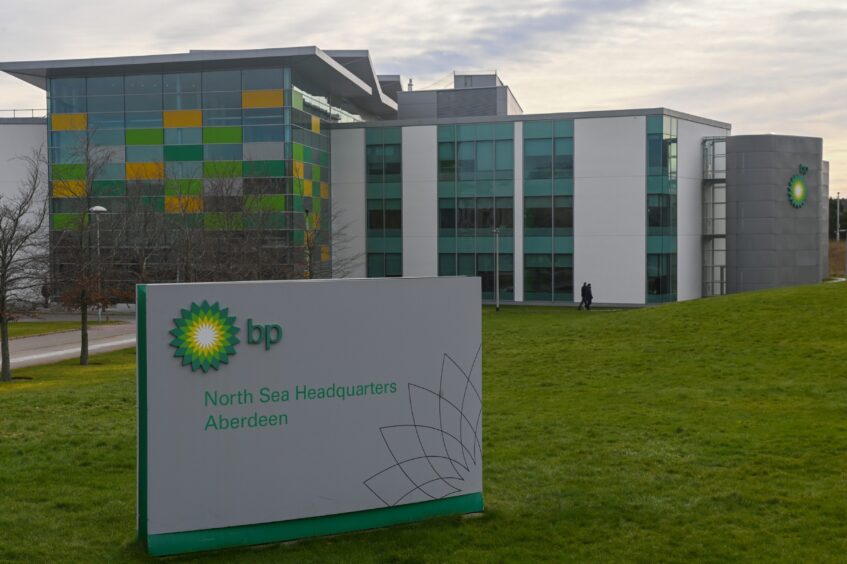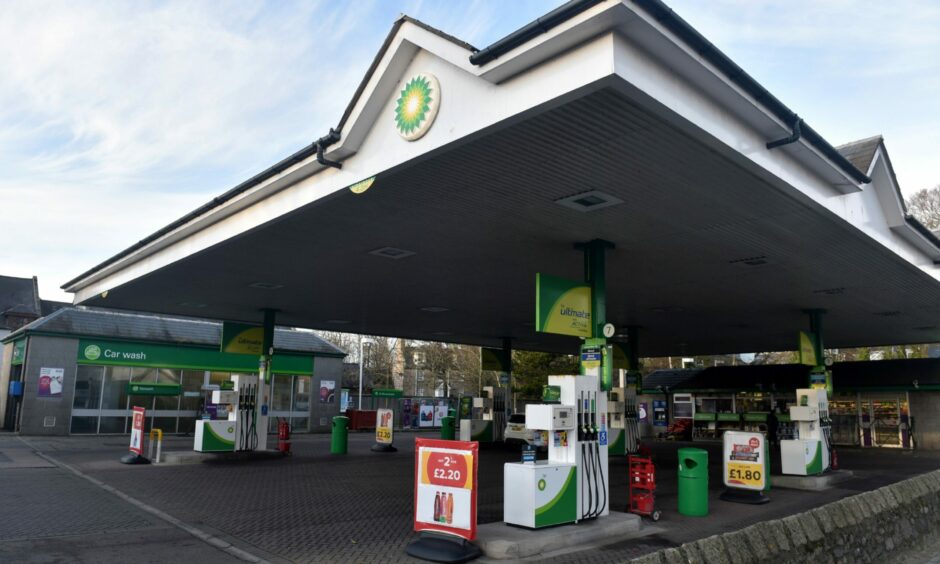Shares in energy supermajor BP are down more than 1.3% after first quarter profits of £3.7 billion fell below analysts’ expectations.
By today’s London market close each unit of stock was worth 503.7p, or 6.7p less.
The £470-a-second pre-tax profits haul for the first three months of this year were generated by revenue and other income totalling nearly £40bn.
Profits and revenue were both substantially lower than a year ago, when commodity prices were higher.
Figures for the first quarter of 2023 showed pre-tax profits of £9.45bn on revenue and other income totalling around £45.4bn.
BP’s favoured measure of trading performance plunges more than 45%
BP’s preferred measure of performance is its underlying replacement cost profits.
These strip out gains or losses on the value of inventories.
On this basis Q1 2024 profits came in at £2.17bn, down more than 45% from £3.96bn a year ago.
Analysts had expected a figure of nearly £2.3bn for the latest period.
BP investors received a first quarter dividend of about 5.8p per share.
But the company has also launched a £1.4bn share “buyback” as part of a £2.8bn commitment to shareholders for the first half of 2024.
Hailing a “resilient” performance in his first results announcement since taking the helm in January, BP chief executive Murray Auchincloss said the energy giant was “simplifying and reducing complexity” across its operations globally.
The company is targeting at least £1.6bn of cash cost savings by the end of 2026 through “high grading our portfolio, digital transformation, supply chain efficiencies and global capability hubs”, he added.
Mr Auchincloss took over the hotseat following the exit of Bernard Looney last year.
‘Relatively inauspicious start’ for new BP CEO Murray Auchincloss
Russ Mould, investment director at financial services firm AJ Bell, said: “The inherent volatility of oil and gas prices means it is inevitable that BP’s profits will wax and wane.
“But the big disappointment for investors will be that they came in below forecasts.
‘Lots of moving parts’
“BP, like its integrated energy rivals, is a business with lots of moving parts and that can make it difficult for analysts to get to the right number.
“With all that said, it still represents a relatively inauspicious start for Murray Auchincloss since his interim role was made permanent in January. Though this is more the equivalent of a caretaker boss at a football club getting the job full time and then losing one-nil in a closely fought game than anything more disastrous than that.”
Earlier this year BP’s new CEO said the company would become more “pragmatic” and “relentlessly returns-focused” in its investment decisions.
Mr Mould added: “Auchincloss is largely singing off the same hymn sheet as his counterpart at Shell, Wael Sawan, when it comes to an energy transition strategy.
“Essentially, the company will make green investments as long as they pay.
“His use of the word ‘pragmatic’ will be seen as a euphemism in some quarters for putting profit before the planet. Backsliding on a commitment to net-zero is not without risk, given the pressure that could come from politicians, some investors, regulators and the public.”
Jamie Maddock, energy analyst at Quilter Cheviot, said: “These are still early days for CEO Murray Auchincloss as he looks to narrow the modest valuation gap with Shell but more so with US peers.
“BP is facing pressures on a few fronts, so unspectacular results will be welcomed until it is clear the business is in better shape.”
Campaign group calls oil firms’ profiteering from Ukraine war ‘obscene’
Meanwhile, international campaign group Global Witness highlighted a “staggering” £22.3bn paid to BP’s shareholders since the invasion of Ukraine in February 2022.
Alice Harrison, the group’s head of fossil fuel campaigns, added: “These past two years have inflicted untold misery and pain on the people of Ukraine, while big energy firms that spent years doing business with Putin’s Russia have seen the cash roll in.
“It’s obscene that anyone would profit from the Ukraine war, the energy crisis, or the climate crisis, but that’s what’s happening..”
